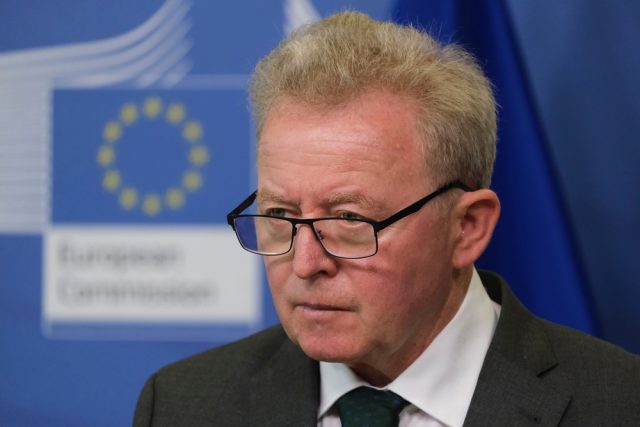
Last week the European Commissioner for Agriculture, Janusz Wojciechowski, explained that Brussels is considering an extension of the vetoes of imports of Ukrainian grains until the end of the year. The Commissioner also proposed a subsidy in the transport of Ukrainian grain to other European ports.
This ban on imports of four agri-food products from Ukraine – wheat, maize, rapeseed and sunflower seeds – to Poland, Romania, Bulgaria, Hungary and Slovakia has been applied since last May, when the five member states showed their complaints about being overwhelmed by Ukrainian agri-food products. Before the extension, it was set to expire on September 15.
In addition to these four products, Wojciechowski also mentioned last Thursday that products such as poultry, eggs and raspberries deserve further analysis.
EU spokeswoman Miriam García Ferrer said at the Commission’s press conference that what the Commissioner Wojciechowski said to MEPs is his “personal proposal”, but that Brussels continues to work to find solutions together with Ukraine and the affected countries.
Four of the European countries affected by this situation, Poland, Hungary, Slovakia, Romania and Bulgaria, have asked Brussels to extend the bans until the end of the year, arguing that the collapse of the Black Sea grain Initiative would inevitably increase Ukrainian exports through land routes.
However, for its part, the Ukrainian government sees any talk of an extension beyond September 15 as impossible, saying that this could violate the association agreement between Ukraine and the EU, going so far as to go against the principle of solidarity on which the European Union is based.
It should be noted that the Ukrainian situation is complex, since the Black Sea is the main export route of Ukrainian grain, and has been blocked by Russia since it abandoned the agreement that allowed the export of Ukrainian cereals on July 17, so the only way for Ukraine to get its production out of the country is through the solidarity corridors promoted by the European Union since May of last year, of which it should be noted that, without a doubt, they have been of great help to Ukrainian citizens in the face of the complex situation they are experiencing.
Poland says it will maintain the veto
On the other hand, last Sunday, the Polish Minister of Agriculture, Robert Telus, has assured that Poland will maintain the veto after September 15 despite the decision that may be taken in Brussels, insisting that the interests of Polish farmers prevail over “any European regulation in this regard”.
Telus added that “closing imports to five countries doesn’t hinder anything.”
For Poland, the issue is especially sensitive because of the upcoming general election: rural voters are seen as an indispensable demographic for Law and Justice (PiS), the ruling Conservative party. The current European Commissioner for Agriculture, Janusz Wojciechowski has been affiliated to PiS since 2010.
Turkey wants to resume Ukrainian grain deal with Russia
Turkey’s President Recep Tayyip Erdogan will meet Vladimir Putin on September 11 to present new proposals for the resumption of the Ukrainian grain export deal, which, as mentioned before, Russia abandoned on July 17 with the justification that its own fertilizers and grains are being blocked by Western sanctions.
Putin’s government insists that resuming the deal depends on whether the West fulfills its commitments or not, referring to the lifting of restrictions on Russian agricultural exports. However, Russian Foreign Minister Sergey Lavrov said that “there are still no guarantees on this (proposal), only promises.”
Recep Tayyip Erdogan is one of the few NATO leaders who maintains good relations with Putin. Before the meeting, he hoped it would also be a platform for broader negotiations for peace between Kiev and Moscow.



 Subscribe
Subscribe